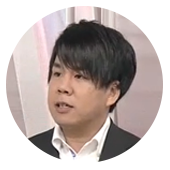Junior high school at night
A group of adults have gathered in a small classroom in Tsu City, Mie Prefecture. They are here for their night junior high school course. The program is offered by the prefectural board of education, with coursework that includes Japanese, mathematics, and other subjects covered in the curriculum of a typical Japanese junior high school.

The prefectural government plans to open its first full-scale night junior high school in Tsu City in fiscal 2025. It is offering this class as a way to gauge the needs of students first.
The people here tonight were all unable to complete their compulsory education. One man in his 40s was a hikikomori, or social recluse, for 30 years. Another student in his 20s had to drop out of school when a family member fell ill.
Kawaguchi Kanae, 28, never even attended elementary school, let alone junior high. This is the first time she is sitting down for a class of any kind.

"This is the first textbook of my life," Kawaguchi says. "I feel very emotional at being 'in school' for the first time."

Slipped through the cracks
Kawaguchi was born in Shiga Prefecture and raised by her mother. When she was six, they moved to Fukui Prefecture. She was supposed to start elementary school around that time but her mother said they didn't have enough money for her to attend.
"I heard the voices of everyone playing outside and wondered why I was the only one who couldn't go to school," she said. "It didn't feel great. But I thought I had no choice because we had no money."
Kawaguchi studied at home using reference books. But she couldn't manage beyond the third-grade level. She says she rarely went outside and had few friends.

She learned much later that the local government would have enrolled her in an elementary school. But since the address on her resident register was different from where she actually lived, local authorities were unable to find her.
"I want to study."
When she was 16, Kawaguchi started working at a convenience store. It was through her conversations with colleagues that she realized her situation was unusual. They would ask her where she went to school, what club activities she did, and she was unable to answer.
"I couldn't answer questions related to school," she said. "It wasn't their fault or mine, but I always felt guilty for not being able to answer."
She then learned of the night class in Tsu and decided to enroll.

Kawaguchi says she's thrilled to finally experience life in the classroom: "It's like I'm young again and at school."
Nationwide night schools
In 2016, the central government enacted a law to ensure educational opportunities for people who didn't attend school as children. Night junior high schools are now opening around the country, with the government calling on all prefectures and 20 major cities to set up at least one each.

As of this April, 17 prefectures had opened night junior high schools, while 14 others were planning or considering to open them.
Meeting diverse needs
Night junior high schools were originally formed as places for people who were unable to finish their compulsory education due to the war or the turmoil of the immediate postwar era. Now, they are tasked with meeting the demands of an increasingly diverse student body.
"There are people who are 'formal graduates' in that they graduated, but they didn't actually learn anything at school," says Okada Toshiyuki, a former professor at the Kyoto University of Education. "We are now targeting these people."
He adds that night schools also cater to foreign residents who do not yet have adequate Japanese ability.
"Many foreigners go to night schools. If they can't read, they can't function in society. Learning helps guarantee a certain quality of life."

Education authorities are dealing with two key challenges facing the night school model. The first is catering the teaching to the individual needs of students. For example, a person who studied math until fifth grade will be in the same class as someone who didn't study it at all. This makes it hard for teachers to provide tailored instruction.
The second is the difficulty of commuting at night. Classes are held five days a week and often end after the last train has left. An online option could be considered to cater to students with professional obligations.
New dream
Despite these issues, night school is helping many students, including Kawaguchi who says it has been a life-changing experience.
"I used to find it difficult to see students walking around outside in their uniforms," she says. "I would feel like I was inferior. But now, I don't have these feelings thanks to the emotional support of my teachers."
Kawaguchi says she now wants to get a teaching license so she can eventually help other people in the same situation.

"There are many people like me who want to learn but cannot," she says. "I want to create a place where these people can feel free to ask questions and learn."
An environment that respects diversity
The vast majority of the 900,000 people in Japan who have not graduated from junior high school are elderly. According to the census, 90 percent are in their 80s or older.
But Okada says the figure does not include "formal graduates" who have completed junior high school without receiving an adequate education. He says their number is far greater than 900,000 and includes younger people.
"We need more than just one night school per prefecture," Okada says. "And their goal should be more than just education. They should create an environment where students respect people of all backgrounds. Understanding of diversity is something all forms of education in Japan should strive for."

